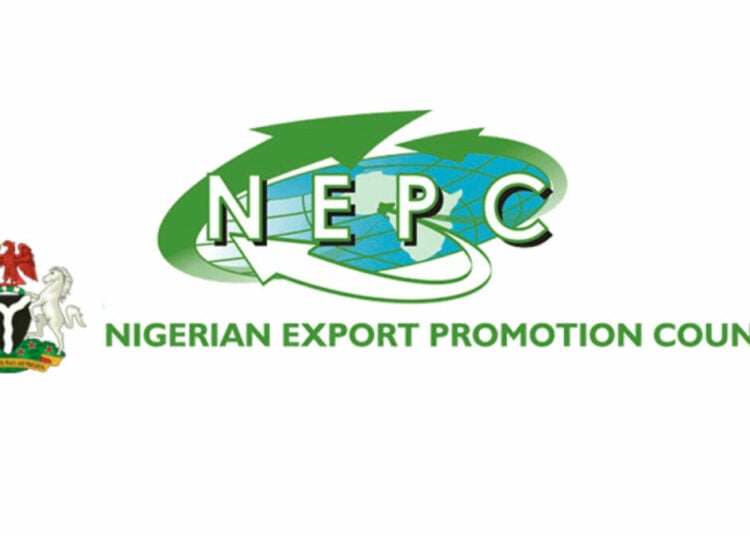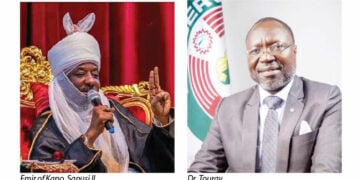The Nigerian Export Promotion Council (NEPC) has reaffirmed its commitment to position Nigeria’s youthful, tech-driven population for global opportunities in service exports through Business Process Outsourcing (BPO).
This was announced during a one-day workshop themed: “Leveraging Business Process Outsourcing for Non-Oil Export Growth,” held at the Council’s Regional Office in Apapa, Lagos.
The event aimed to sensitise and equip young Nigerians with the knowledge and practical skills required to offer BPO services that meet international standards, in alignment with NEPC’s goal to expand the country’s non-oil export base through service-oriented ventures.
In her keynote address, Executive Director/CEO of NEPC, Mrs. Nonye Ayeni, represented by Mr. Sunday Ayodele, highlighted Nigeria’s vast potential in the global outsourcing market, describing the nation as “young, talented, bold, and ready to work.”
“The world is beginning to notice that talent and creativity abound in Nigeria,” she said. “As the apex government agency for non-oil exports, NEPC is committed to positioning these talents and creative minds for global opportunities through strategic support and capacity development.”
Ayeni emphasised that services contribute over one-third of the world’s economy and are increasingly shared across borders through ICT-enabled processes such as the internet.
Citing findings from a PwC analysis, she noted that expanding Nigeria’s export of the Business Process Outsourcing (BPO) industry from 16,000 practitioners to 200,000 could push the sector’s monthly earnings to US$292 million and yearly revenue to US$3.7 billion.
“This projection shows the enormous potential Nigeria holds in the BPO sector,” she said. “We are determined to equip participants with the requisite knowledge and skills to compete effectively in this fast-growing global industry.”
She further urged participants to continuously invest in self-development, seek new knowledge, and remain competitive in the digital economy.
The workshop’s technical session was led by Dr. Madu Obiora, founder of BPO Academy, who delivered an engaging and insightful presentation on Understanding Outsourcing and Global Competitiveness.
Using practical examples and storytelling, Obiora explained the different categories of outsourcing, including Business Process Outsourcing (BPO), Knowledge Process Outsourcing (KPO), Legal Process Outsourcing (LPO), and Creative Process Outsourcing (CPO).
He highlighted how globalisation and technology have erased geographical barriers, allowing Nigerian professionals to work for foreign companies remotely.
“The world is flat,” he explained, referencing Thomas Friedman’s book on globalisation. “Today, it doesn’t matter where you are—London, Lagos, or Delhi—what matters is the quality of your service and the knowledge you bring to the table.”
Dr. Obiora urged participants to strengthen their skills, embrace innovation, and adopt a global mindset.
“You don’t need capital to offer services; what you’re selling is here,” he said, pointing to his head. “Knowledge is your biggest asset. Once you have it, you can compete globally.”
He further encouraged participants to view their work from a larger perspective, comparing service providers to “cathedral builders” rather than “stonecutters”—people who see the big picture and take pride in the excellence of their craft.
Closing the workshop, Mr. Ayodele Sunday, Assistant Director, Services Department at NEPC, emphasised the importance of self-reliance, digital presence, and skill development among Nigerian youths.
“We must intentionally look out for opportunities, build professional communication skills, and remain relevant in the digital workspace,” he said. “Government jobs are no longer the solution—remote work and service exportation are the future.”
He noted that many Nigerians are already earning sustainably through remote jobs, stressing that participants should leverage insights from the workshop to build careers that enhance both personal and national economic growth.
“This engagement is to help us reduce dependence on government jobs,” Ayodele said. “Let’s use what we’ve learned to improve our lives, our families, and ultimately, the Nigerian economy.”
The one-day capacity-building workshop concluded with participants expressing appreciation to NEPC for its continued efforts in promoting youth empowerment and service export growth through practical, skill-based initiatives.





